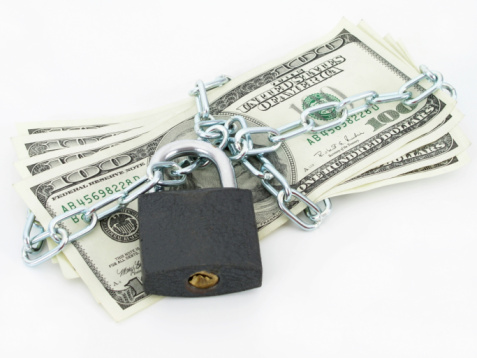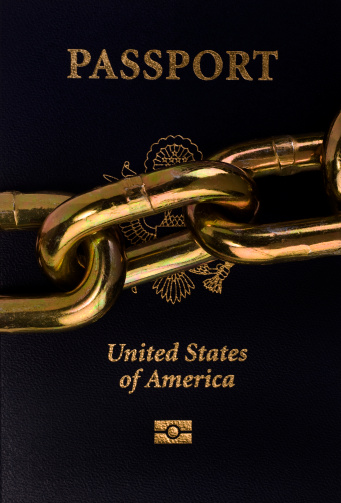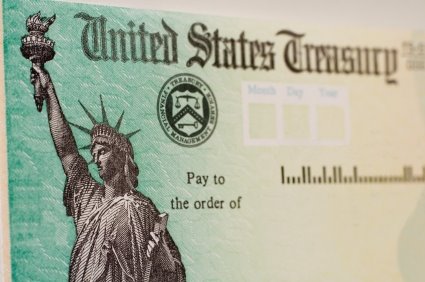Can the Government Seize my IRA?
One of the most common questions I get is, “can the government seize my IRA?”
With all of the uncertainty in the USA, and the growing hostility towards our government and its practices, many Americans are concerned about their retirement accounts. For most, their retirement account is their only liquid asset, the majority of their savings, and probably their largest holding, after their home. Just about every day I am asked, “Can the US seize my IRA account and, if so, what can I do to protect it?”
I hate to be an alarmist, so I usually try to calm the fears of these concerned citizens by saying the government can seize your IRA, but they probably won’t. This is the best I can offer because there are many examples of the US government seizing bank accounts, real estate and other properties, and yes – retirement accounts. The government can and does seize these accounts all the time and court action or oversight is not required. In fact, I would bet that the US government seizes several IRA accounts every day.
Let me explain how the government can seize your IRA: Most think their retirement accounts are protected…and some are, from civil creditors under your State’s applicable law. How much is protected depends on your State and the type of claim brought against you.
Level 1: There are Federal ERISA laws that protect some accounts, but not all.
Examples of ERISA-qualified pension and benefit plans include:
- 401(K) accounts
- pension and profit-sharing plans
- group health and life insurance plans
- dental and vision plans, and
- HRAs, HSAs, and accidental death or disability benefits.
If your retirement account is not covered by ERISA, and you live in California, then a judgment creditor may be able to get to it.*
Level 2: Some of the most popular retirement accounts are not covered by ERISA.
Types of non-ERISA accounts that may be vulnerable include:
- IRAs, Roth IRAs and SIMPLE IRAs
- SEP and Keogh Plans
- 403(b) plans for employees of a public school or university
- plans that do not benefit employees, or “employer-only” plans, and
- government or church plans
* Each State has its own laws. The example above is from California and may not apply to you.
The above applies only to civil creditors. None of these accounts are protected from the Federal government going after unpaid taxes or a spouse or child seeking back support with a domestic relation order in hand (called a “QDRO”).
While a spouse or child must go to court and get a judgment, the IRS needs no such approval. Any IRS agent assigned to collect from you can issue a letter to your bank and IRA custodian to seize 100% of your assets up to the amount they claim you owe. No court or other oversight is required and no formal process is required. The agent need only hit a few keys on his computer and your money is gone.
The same is true for those charged with a crime. The government can step in and seize all of your assets and hold them until the case has run its course. This includes real estate, cash, bank and retirement accounts, and automobiles. If you win your case, you will get these back…of course, you have no money to pay a decent attorney, but who cares?
The Feds can also seize your property if it is used by someone else in the commission of a crime. In 2012, Pot Shops were big business in California. Various counties and the State passed laws that allowed for medical marijuana use and sale with a prescription. Well, these dispensaries were usually rented from building owners by the operators. The Federal Government, not big fans of California’s tomfoolery, sent letters to the owners of these properties saying the Feds would seize their buildings, regardless of State or local law, if they continued to rent to these modern hippies. Building owners complied and the industry was largely shut down.
If you have read this far, you may be wondering why I am rambling on about tax cheats, criminals and potheads. It is because these are current examples of the Feds taking from its citizenry without judicial oversight or new laws being passed. How difficult would it be for the government to demand all retirement accounts be placed under Federal control, or at least force them to be held in a central depository? I guarantee it is easier than finding a legitimate way to solve America’s spending problem.
There are historic examples, and international instances, of government takings. It was not so long ago that the tiny island of Cyprus, on the insistence of the EU, took a significant portion of the money held in its banks to pay down its debts. Of course, we assume this will never happen in America…just as we assume our government was not spying on us and operates with only good intentions.
In the good ole’ USA, we can look back to 1933 when the Federal Government seized all gold and gold certificates by Presidential Order 2039. There was no need to pass a new law or special process to protect the citizenry. It was deemed to be in the best interest of the masses, so it was done.
This taking was sold to the public as being for their own good. The Feds claimed that “hoarding” of gold was stalling economic growth and making the depression worse. Why not hording of retirement assets by the “rich?”
As it turned out, it was just a money grab – prior to the taking, the price of gold was fixed at $20.67 per ounce. After the gold had been rounded up, the Fed raised the price to $35 an ounce, resulting in an immediate loss for everyone who had been forced to surrender their gold. The profit funded the Exchange Stabilization Fund established by the Gold Reserve Act in 1934.
So, I ask you this: When you look at the current state of the US, the economic situation of the average voter, and the unprecedented attack on the “rich,” do you think there would be a major revolt if the Government seized all retirement accounts over, say, $50,000 or $100,000?
You do have one option to protect your nest egg. You can move it in to an offshore IRA LLC with an account at an international bank outside of the reach of any type of US creditor. Such a structure is compliant with all current US rules and you will maintain the tax free (ROTH) or tax deferred (traditional IRA, etc.) nature of your retirement account.
The only caveat is that you need to be careful where in incorporate and where you bank. The US IRS can seize assets in Canada, France and the UK without notice and without legal proceedings. They can also levy any bank account at any institution with a branch in the United States.
For example, if you buy real estate in France, the IRS can seize it to satisfy back taxes. If you take your IRA to Panama, but make the mistake of depositing it in to HSBC, the IRS can levy that account by issuing a notice to HSBC New York. These are not hypothetical…I have personally handled cases of this type around the world and know these things to be true.
For detailed information on moving your IRA or other retirement account offshore, please see: Moving Your Retirement Account Offshore with a Self Directed IRA LLC. If you are concerned about protecting your retirement, I suggest you take action now. It is imperative that you have your affairs settled prior to the end of the year and the implementation of the Foreign Account Tax Compliance Act. For information on this law, see the Deloitte website.
So, can the government seize your IRA? The answer is yes. Now, what will you do to protect it?












Leave a Reply
Want to join the discussion?Feel free to contribute!